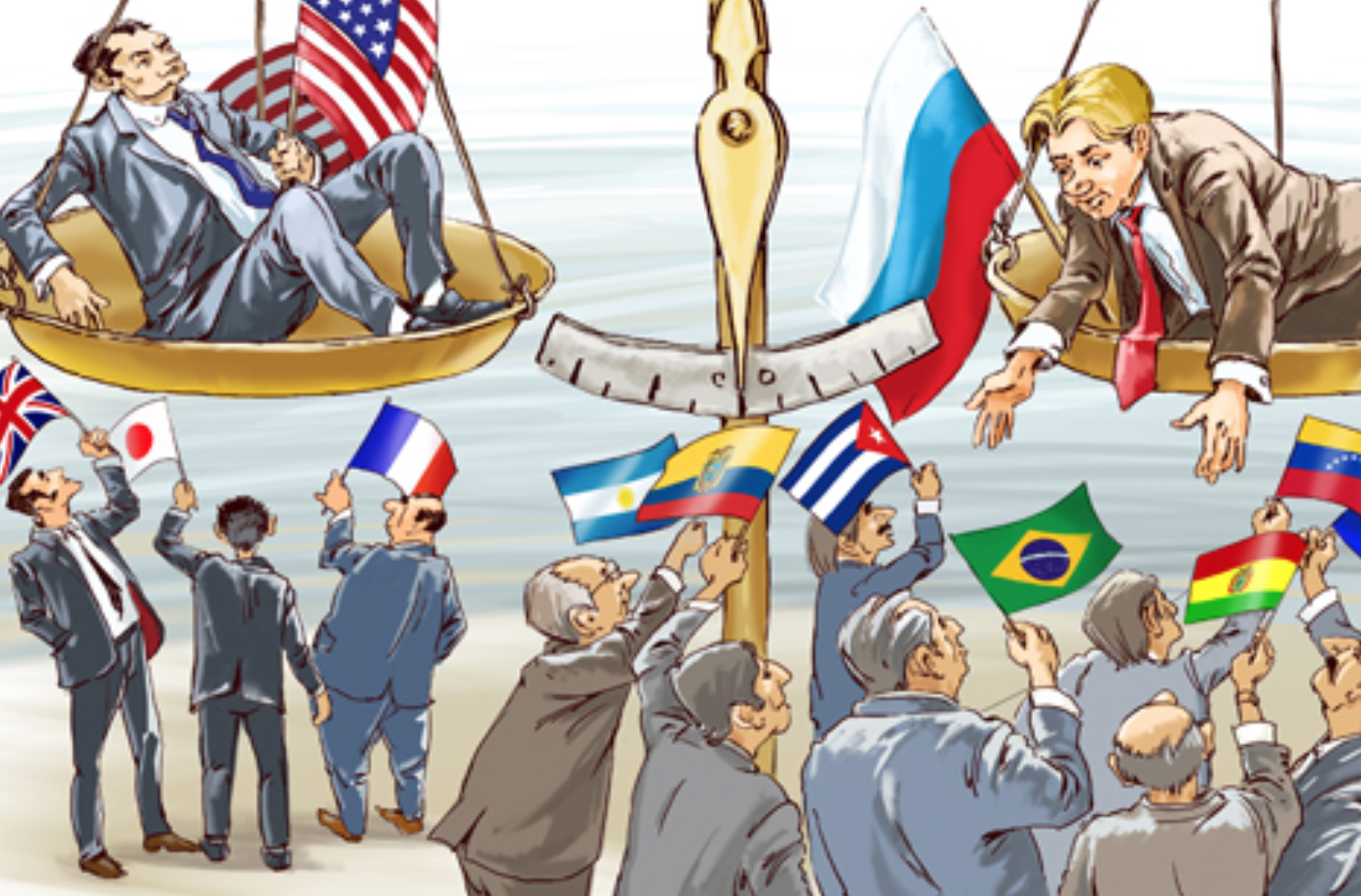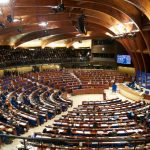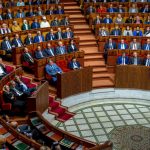Cooperating closely with Iran and China Russia fully fell back into the Soviet Union pattern in performing its policy in Latin America. The Kremlin builds anti-American ideas in the region by using a wide range of groups, starting from pro-Russian Islamists and youth movements who being suppressed by the negative economic situation in the region tend toward left-wing political ideas, to local criminals. Thus, Russia’s politics in Latin America is based on ‘anti-American forces’, drug cartels and Islamists merger.
According to White House Chief of Staff John Kelly, who testified before the Senate Armed Services Committee in March 2015, since 2008, Russia has pursued an increased presence in Latin America through propaganda, military arms and equipment sales, counterdrug agreements, and trade. Under President Putin, however, we have seen a clear return to Cold War-tactics. As part of its global strategy, Russia is using power projection in an attempt to erode U.S. leadership and challenge U.S. influence in the Western Hemisphere.
Russia is playing a big role in Latin America to destabilize Washington’s alliance system and threaten U.S. interests. Despite the costs involved in sustaining Cuba, Venezuela and Nicaragua, Russia’s three main “proxies” in Latin America, President Vladimir Putin—like his Soviet predecessors—seems willing to bear those expenditures.
Since the Soviet Union times far-left political forces have been Russia’s key political driver in Latin America. Left-wing Latin American forces traditionally tend toward Moscow. Almost all Latin American leftists positioning themselves as socialists of the 21st century were either fully pro-Russian (Kirchner, Ortega, Castro, Chavez-Maduro, Correa), or moderately pro-Russian with strong pro-Chinese sympathies (Lula Dilma in Brazil, Umala in Peru.)
In order to diversify financial expenses to implement Russia’s policy in Latin America, the Kremlin is actively attracting Shiite-oriented (pro-Iranian-pro-Russian) Islamists to its side. Moreover, it also uses Russian-loyal Ba’athists (pan-Arabists) and all possible anti-Israeli national-Islamic movements. The Kremlin built these bridges through the Communist Party, the KGB and youth organizations during the Cold War. The Middle East communities in Latin America are actively involved in the arms and drugs traffic, and money laundering. For example, the Iraqi Ba’athist High Command of Jihad and Liberation leader Izzat Ibrahim al-Duri who lives in Venezuela is a close associate of the father of former vice president of Venezuela Tarek al-Aissami. Being accused of drug traffic, money laundering and corruption Tarek al-Aissami is an acting Minister of Industry. He is closely associated with Hezbollah and the Cartel of the Suns, the structure created and led by Venezuelan security services and the military.
Tareck used to deal in Venezuelan passports and granted citizenship to hundreds of Islamic and far-left terrorists illegally. Later on, these people got incorporated directly into the state structures and turned to high-ranking officials.
Local criminal groups are actively involved in different activities such as street actions, physical liquidations and destabilization of the situation in the countries of the region (Chile, Colombia, Ecuador, Argentina). They communicate mainly through large drug cartels with the Russian intelligence or leaders of some Russia-loyal regimes. For example, the Venezuelan government openly welcomed wanted FARC terrorists; its top officials took pictures with them for the media and gave the militants an opportunity to lecture and deliver a speech at universities and schools.
Russia’s Collaboration with criminals by governments in pursuing foreign-policy goals is certainly not unique to Moscow, and obviously is an imitation of the 1985-87 Iran-Contra deals with drug traffickers. It is striking in contrast that Russia appears to be deploying organized-crime connections abroad in ostensible peacetime, reflecting that Moscow sees the current geopolitical clash with the West as an existential political struggle analogous to war.
Russian security services, including intelligence and the FSB, are actively working with international drug cartels and terrorist groups such as FARC-ELN, Hamas or the Sinaloa cartel. Criminal-terrorist ties in Cuba became intermediaries in establishing such relations that Russia could gradually renew and strengthen by writing off debts to Cuba, and its involvement in the activities of cartels and far-left forces. This very fact is proved by the recent scandal related to 400 kg of cocaine found on the territory of the school at the Embassy of Russia in Argentina. The Russian Foreign Ministry tried to present the incident as part of anti-drug traffic activity, however, the cocaine was transported to Russia by plane of the FSB director.
Russian economist Maxim Mironov, cited by Bloomberg, who lives in Buenos Aires and whose children attend the school, has expressed doubt that 12 massive suitcases could have been moved into the school without the knowledge of the embassy’s security service. It’s also difficult to explain why a Russian businessman named Andrei Kovalchuk tried to claim the cargo on behalf of the former embassy worker, offering to fly it to Moscow on a private plane.
Russia plays a central part in the global drug trade, but primarily as the world’s largest consumer of heroin, which is generally trafficked in from Asian countries such as Afghanistan. Nevertheless, according to European police force Europol, it also has a growing consumer market for cocaine and the emerging entry point for cocaine into Europe. With U.S. cocaine consumption dropping, and prices stable at less than $15,000 a kilo, Russia offered a significant opportunity for traffickers to access a new and growing cocaine consumption market. Exploding demand in Russia and the former Soviet states has driven prices in their domestic markets up to $45,000 to $50,000 a kilo. With the FARC controlling the great majority of the world’s cocaine production it would be impossible for Russian traffickers to buy the product without dealing with the FARC.
Since the Soviet times Russia’s military intelligence has coordinated the similar scheme of heroin traffic to Europe.
Russia’s state activities in Latin America are financed by such Russian corporations as Rosneft and Rosatom who cover the financial expenses in exchange for contracts and attempts to establish a monopoly in the region.
Russia’s expanded outreach to the ALBA bloc helps insure that Russia’s Latin American allies have a powerful friend on the United Nations Security Council to veto any efforts to hold them accountable for human rights violations or electoral fraud. In return, these Latin American allies are shielding Russia from international isolation, providing political and diplomatic support, and an important regional media network that blankets the continent. The media network offers coordinated messages of unstinting support for Putin and Russia’s aggressive actions in Europe while casting the United States as a global aggressor. At the same time, these countries are increasing Russia’s access to the hemisphere’s ports and airspace, and ultimately, increasing Russia’s sphere of influence in a region where the United States has seldom been so directly challenged.
Image: Drawing by Dmitry Divin.






